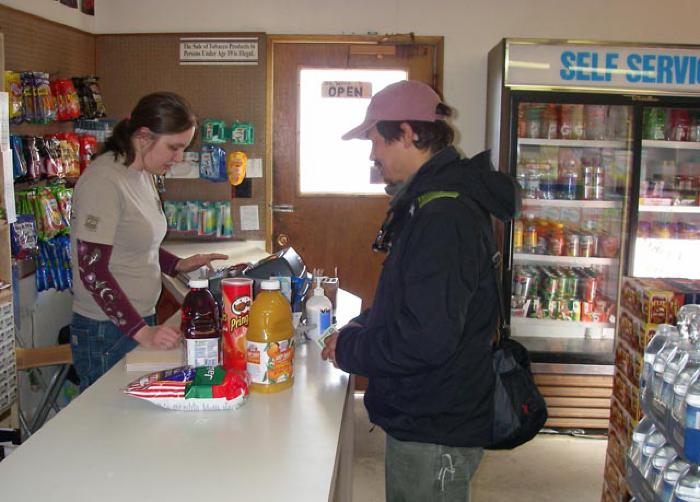Cannery Store — KaanaRiim Laaf’kaa’a

Alutiiq families living in rural communities supplement their catches of fish and game with groceries purchased from privately run community stores or shipped by air from big chain supermarkets in Kodiak. In the past, however, groceries were harder to obtain. Some supplies were shipped by boat, a process that could take weeks. Others could be purchased seasonally at rural canneries. During the summer, cannery stores offered food, fuel, and dry goods in areas where boat arrivals from town were infrequent and airplane service was even rarer. Elders remember their parents buying flour, sugar, tea, rice, lard, salt, cloth, and shotgun shells at cannery stores, supplies that often had to last until the store opened again the following summer.
In the early nineteenth century, some canneries created exchange systems. Alutiiq workers received credit at the store against their wages. While convenient, such arrangements were often unfair. Canneries enticed their workers to purchase goods at a premium price, ensuring a profit for themselves. In some cases, stores purposefully over-extended credit, creating debts that people had to pay off through future employment. This ensured the cannery a workforce in the coming season and often placed families in increasingly serious debt.
